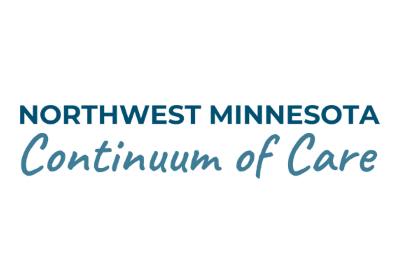Lori Anderson prepares to retire from position dedicated to helping those living through homelessness access services

Lori Anderson has spent her life serving others.
When her children were small, she provided child care in her home. As they grew older, she worked for the Boy Scouts of America.
When she went back to work full-time, she was employed by the Salvation Army, an “organization dedicated to doing the most good.” It was in her work with Salvation Army that she discovered an ability to develop a trusted rapport with the people she worked with.
In 2003, Lori joined the Tri-Valley Opportunity Council, a community action partnership agency serving northern Minnesota. Lori describes a community action partnership agency as an entity that picks up where social services leaves off, providing different types of service for individuals and families experiencing or at risk of homelessness. They may assist housing services and/or provide emergency assistance, energy assistance, supportive services, for example.
Through her work at Tri-Valley, Lori became the priority list manager for the coordinated entry system in Northwest Minnesota. The coordinated entry system is a tool that provides access to services for those living through homelessness, efficiently connecting them to interventions that will rapidly end their homelessness.

This work matters: Coordinated Entry

The coordinated entry system is utilized by providers who receive federal and state funding to assist in securing and stabilizing persons in housing.
Families and individuals who are experiencing homelessness or who are at risk of such are impacted by the work of the priority list manager because that person can provide housing solutions and services to meet their needs. Through extensive case conferencing, the priority list manager offers a platform for agencies to meet, advocate for their clients, and exchange referrals and resources to quickly house the people they serve.
This work matters. Families benefit when the cycle of generational homelessness is broken. Schools realize better students when families are housed. When families have their basic needs provided, they are better able to contribute in the local economy through secured employment, investing disposable income into the region.
Lori, who is retiring from her work this year, is proud of how Northwest Minnesota has utilized its coordinated entry system in providing housing solutions. Through an intense, three-year process that involved collaboration from multiple agencies, the coordinated entry system is operating in an efficient manner that prioritizes individuals in greatest need for housing services.

“Homelessness isn’t a ‘them’ issue, it’s an ‘us’ problem to solve,” said Lori, when asked about the actions she’d like to see our communities take in addressing homelessness. “If members of our community are in need, the greater community should be concerned. We need to ask, ‘How can we, as communities, better advocate for our neighbors, how can we become better informed?’
We need to bring the homelessness conversation into the open by first acknowledging it exists and then exploring ways we can help. Volunteer at a local food pantry, school or shelter. Get involved in community events. Explore new ways to make an impact. See the person homelessness affects.”
The coordinated entry system is a tool deployed by the Northwest Continuum of Care, a regional planning body of stakeholders who share a commitment to ending homelessness. The Northwest Minnesota Foundation serves as the collaborative host of the NWCoC.
“As Lori moves into retirement, we would like to take this opportunity to thank her for her many years of service, working toward making our region a place where communities and people work together to foster opportunity, enriching the lives of all residents,” said Barbara Johnson, an NMF program officer who serves NWCoC coordinator. “We all do better when we all do better.”






